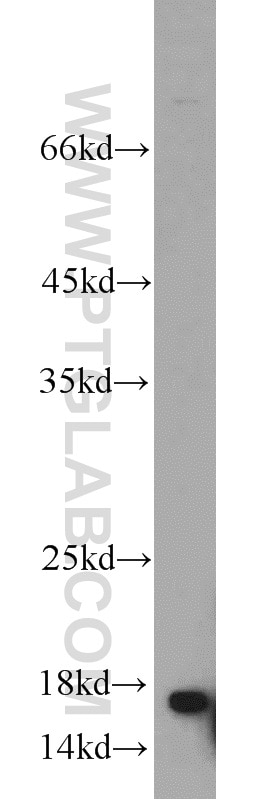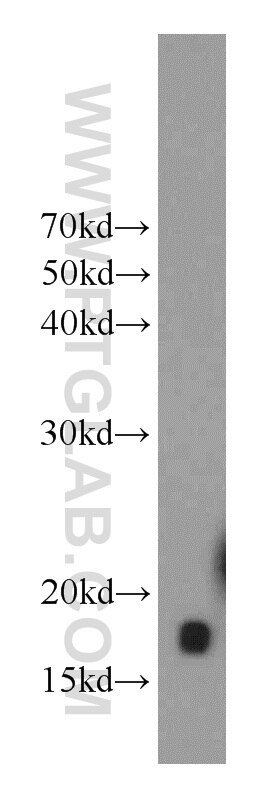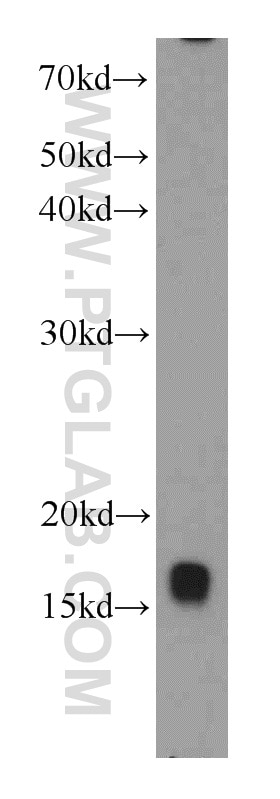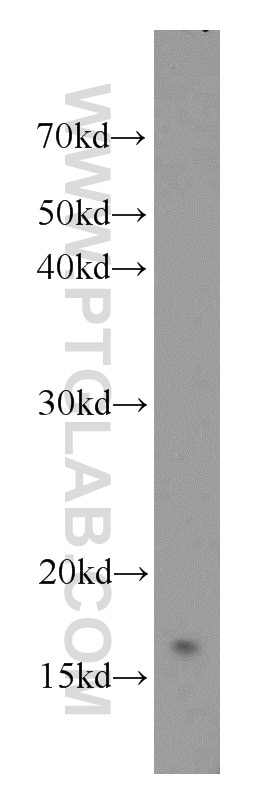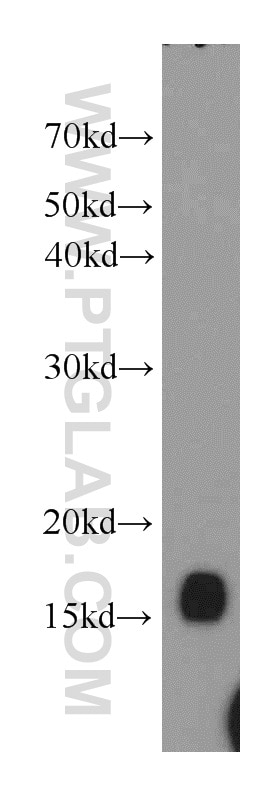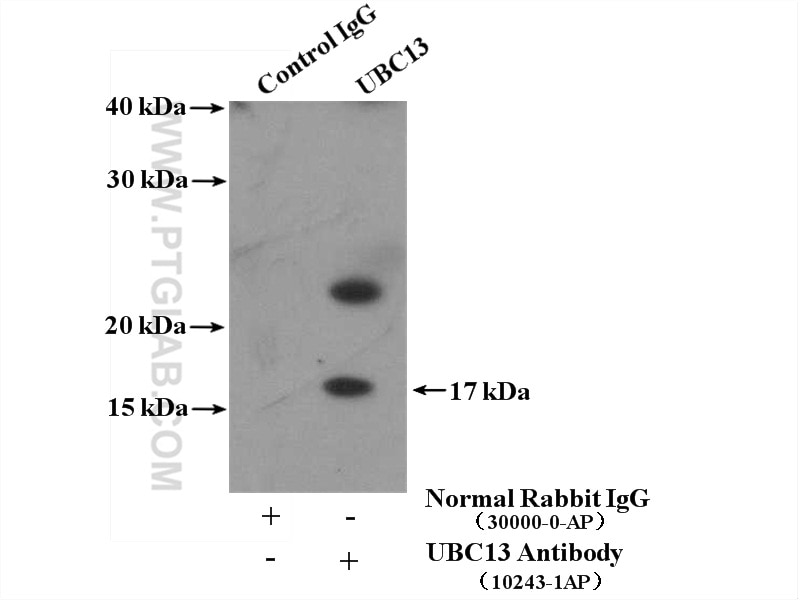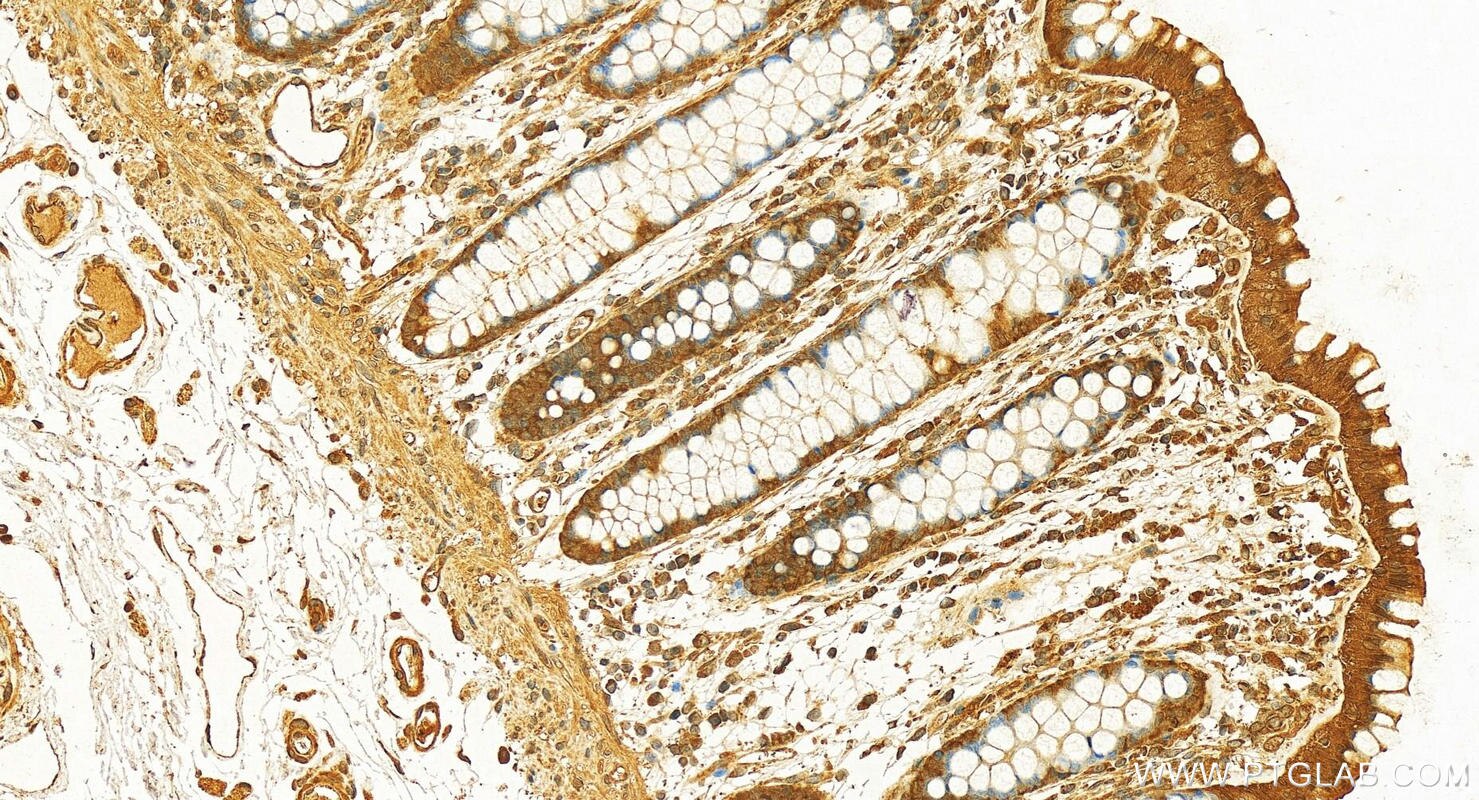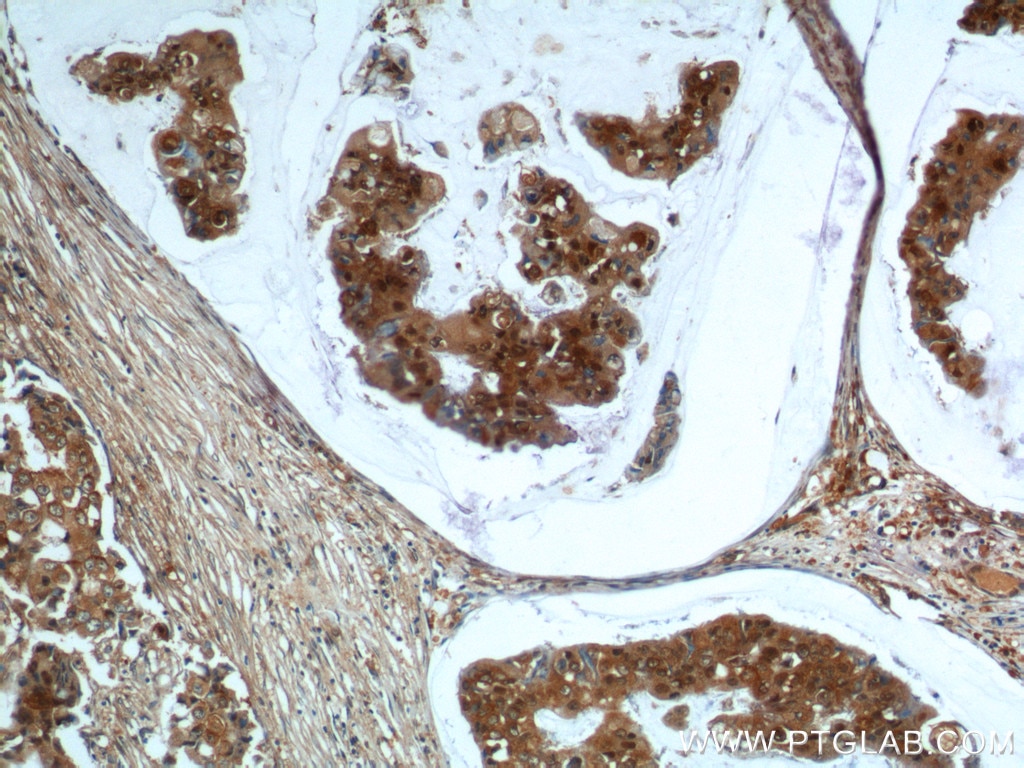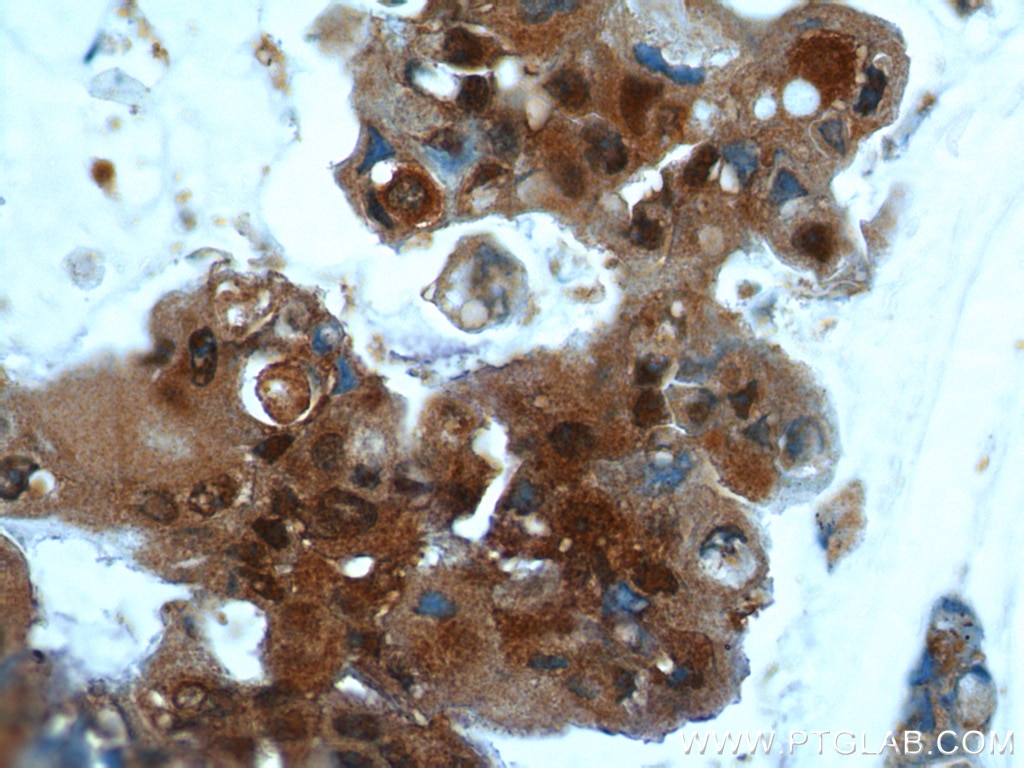UBC13 Polyklonaler Antikörper
UBC13 Polyklonal Antikörper für WB, IHC, IP, ELISA
Wirt / Isotyp
Kaninchen / IgG
Getestete Reaktivität
human, Maus, Ratte und mehr (2)
Anwendung
WB, IHC, IP, ChIP, ELISA
Konjugation
Unkonjugiert
Kat-Nr. : 10243-1-AP
Synonyme
Geprüfte Anwendungen
| Erfolgreiche Detektion in WB | Maus-Thymusgewebe, humanes Herzgewebe, Jurkat-Zellen, Maus-Dünndarmgewebe |
| Erfolgreiche IP | MCF-7-Zellen |
| Erfolgreiche Detektion in IHC | humanes Kolongewebe, humanes Mammakarzinomgewebe Hinweis: Antigendemaskierung mit TE-Puffer pH 9,0 empfohlen. (*) Wahlweise kann die Antigendemaskierung auch mit Citratpuffer pH 6,0 erfolgen. |
Empfohlene Verdünnung
| Anwendung | Verdünnung |
|---|---|
| Western Blot (WB) | WB : 1:500-1:2000 |
| Immunpräzipitation (IP) | IP : 0.5-4.0 ug for 1.0-3.0 mg of total protein lysate |
| Immunhistochemie (IHC) | IHC : 1:50-1:500 |
| It is recommended that this reagent should be titrated in each testing system to obtain optimal results. | |
| Sample-dependent, check data in validation data gallery | |
Veröffentlichte Anwendungen
| WB | See 6 publications below |
| IHC | See 1 publications below |
| IP | See 1 publications below |
| ChIP | See 1 publications below |
Produktinformation
10243-1-AP bindet in WB, IHC, IP, ChIP, ELISA UBC13 und zeigt Reaktivität mit human, Maus, Ratten
| Getestete Reaktivität | human, Maus, Ratte |
| In Publikationen genannte Reaktivität | human, Affe, Hausschwein, Maus |
| Wirt / Isotyp | Kaninchen / IgG |
| Klonalität | Polyklonal |
| Typ | Antikörper |
| Immunogen | UBC13 fusion protein Ag0292 |
| Vollständiger Name | ubiquitin-conjugating enzyme E2N (UBC13 homolog, yeast) |
| Berechnetes Molekulargewicht | 17 kDa |
| Beobachtetes Molekulargewicht | 17 kDa |
| GenBank-Zugangsnummer | BC000396 |
| Gene symbol | UBC13/UBE2N |
| Gene ID (NCBI) | 7334 |
| Konjugation | Unkonjugiert |
| Form | Liquid |
| Reinigungsmethode | Antigen-Affinitätsreinigung |
| Lagerungspuffer | PBS with 0.02% sodium azide and 50% glycerol |
| Lagerungsbedingungen | Bei -20°C lagern. Nach dem Versand ein Jahr lang stabil Aliquotieren ist bei -20oC Lagerung nicht notwendig. 20ul Größen enthalten 0,1% BSA. |
Hintergrundinformationen
The modification of proteins with ubiquitin is an important cellular mechanism for targeting abnormal or short-lived proteins for degradation. Ubiquitination involves at least three classes of enzymes: ubiquitin-activating enzymes, or E1s, ubiquitin-conjugating enzymes, or E2s, and ubiquitin-protein ligases, or E3s. UBE2N is a member of the E2 ubiquitin-conjugating enzyme family. Studies in mouse suggest that this protein plays a role in DNA postreplication repair.
Protokolle
| PRODUKTSPEZIFISCHE PROTOKOLLE | |
|---|---|
| WB protocol for UBC13 antibody 10243-1-AP | Protokoll herunterladen |
| IHC protocol for UBC13 antibody 10243-1-AP | Protokoll herunterladenl |
| IP protocol for UBC13 antibody 10243-1-AP | Protokoll herunterladen |
| STANDARD-PROTOKOLLE | |
|---|---|
| Klicken Sie hier, um unsere Standardprotokolle anzuzeigen |
Publikationen
| Species | Application | Title |
|---|---|---|
Alzheimers Dement Suppressing UBE2N ameliorates Alzheimer's disease pathology through the clearance of amyloid beta | ||
Cell Mol Immunol The deubiquitinase OTUB1 augments NF-κB-dependent immune responses in dendritic cells in infection and inflammation by stabilizing UBC13. | ||
Mol Cell Proteomics The mechano-ubiquitinome of articular cartilage: Differential ubiquitination and activation of a group of ER-associated DUBs and ER stress regulators | ||
Nat Commun FTO-dependent m6A modification of Plpp3 in circSCMH1-regulated vascular repair and functional recovery following stroke | ||
Mol Biomed SP1 transcriptionally regulates UBE2N expression to promote lung adenocarcinoma progression | ||
Proc Natl Acad Sci U S A Nonproteolytic ubiquitination regulates chromatin occupancy by the NCoR/SMRT/HDAC3 corepressor complex in MCF-7 breast cancer cells |
Rezensionen
The reviews below have been submitted by verified Proteintech customers who received an incentive for providing their feedback.
FH Jessica (Verified Customer) (11-14-2019) | Antibody works well for detecting the endogenous Ubc13 protein in 293T cells. Strong signal and few non specific bands.
|
